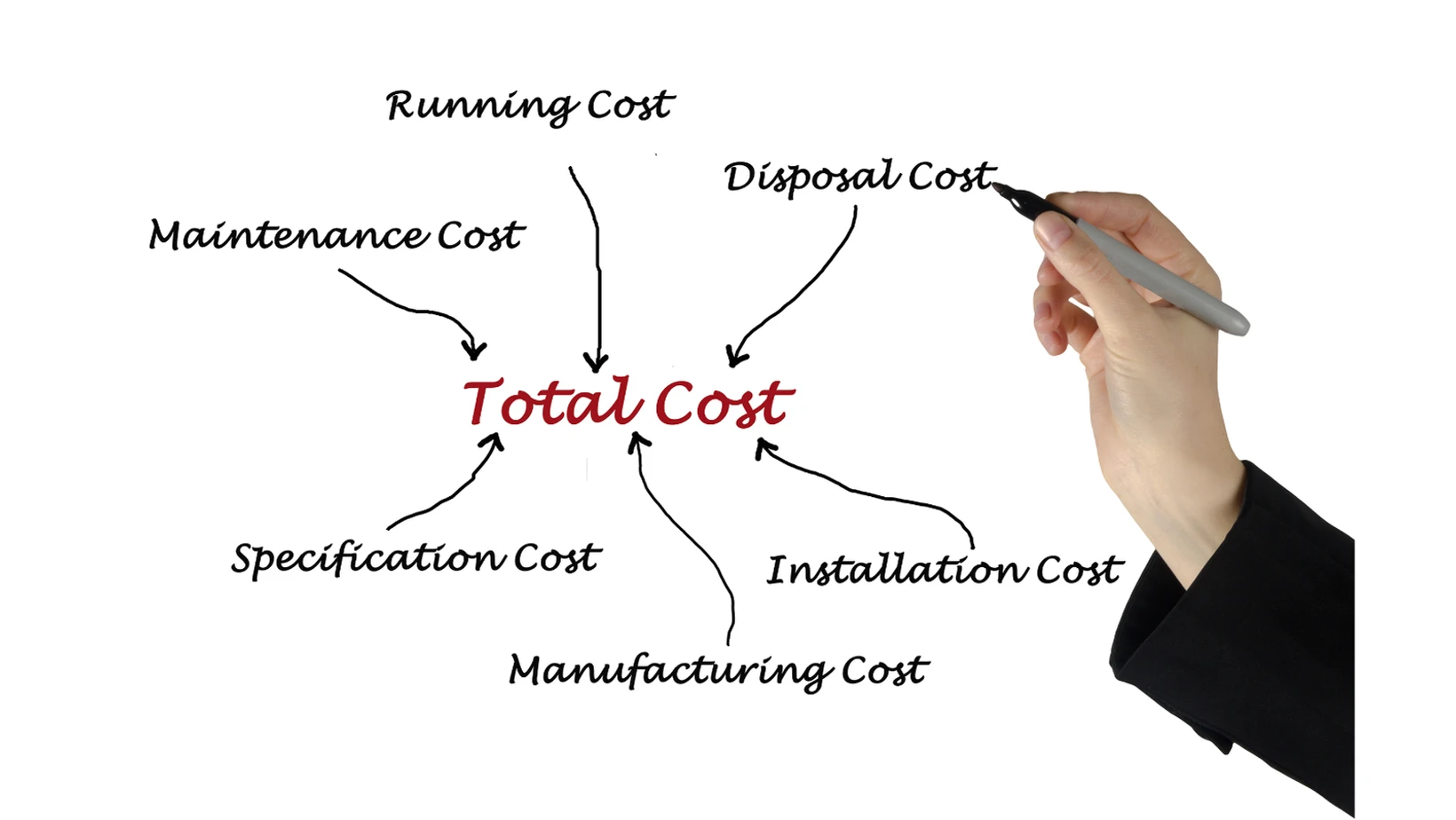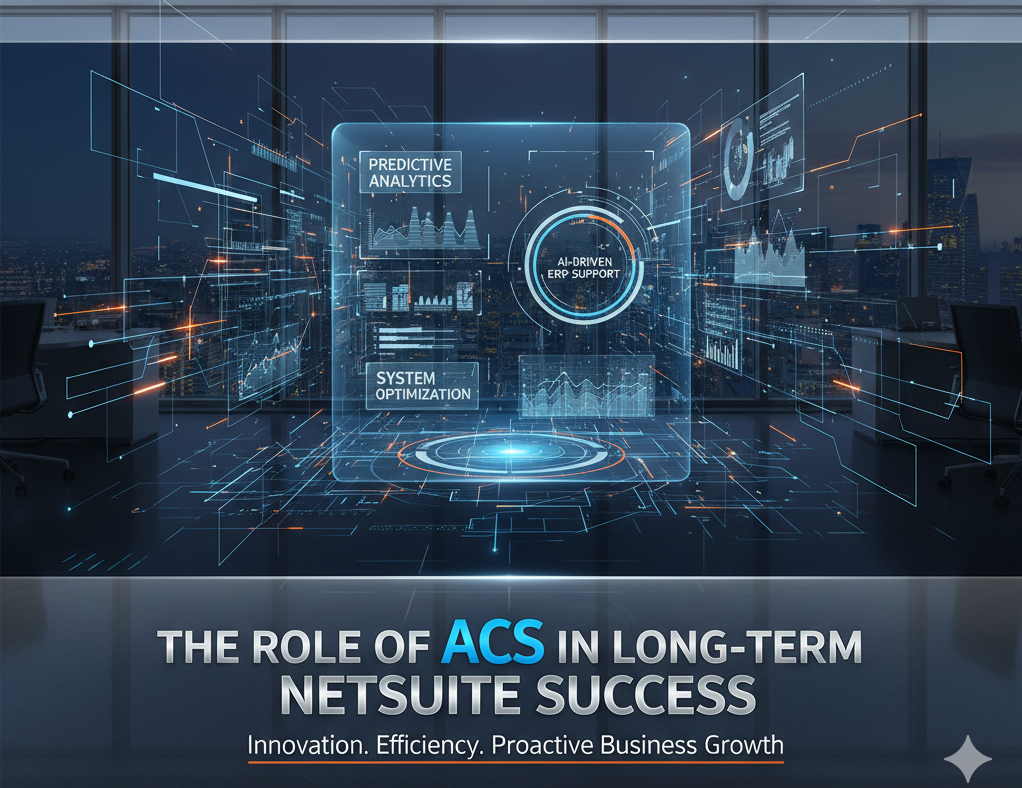Amidst fierce business competition, cloud-based ERP solutions emerge as the optimal choice for enterprises spanning from large corporations to small-scale businesses.Cloud ERP solutions, such as NetSuite, have gained traction for their cost-effectiveness, particularly for small and midsize businesses. By eliminating the need for on-premises hardware and ongoing infrastructure expenses, these solutions have become more accessible to smaller entities. Rather than a significant initial investment, the cost is distributed across several years through a subscription-as-a-service (SaaS) model. This arrangement holds significant appeal for SMEs. However, before taking the plunge, they seek clarity on the comprehensive expenses associated with implementing and maintaining the ERP system.
This exploration delves into both the initial and continuous expenses that contribute to the Total Cost of Ownership (TCO) for your NetSuite system. While NetSuite offers extensive functionality by default, there are instances where tailoring the solution becomes imperative to align with specific business requirements. It’s crucial to note that customization involves altering the system’s functionality, which naturally incurs additional expenses. As a guiding principle, customization should only be pursued when necessary. Engaging a proficient NetSuite partner, such as Project Line, becomes instrumental in determining the instances where customization is warranted and providing a cost estimate based on your unique needs.

Unraveling the NetSuite Cost Structure
NetSuite Software Recurring Cost (SaaS)
NetSuite’s pricing structure revolves around its Software as a Service (SaaS) model, a contemporary approach in which users subscribe to gain access to the platform’s functionalities. This subscription-based model forms the bedrock of NetSuite’s recurring cost system. Users pay regular subscription fees to avail themselves of the software’s services, which encompass various features, updates, and ongoing support. This approach offers a flexible and scalable payment structure, allowing businesses to tailor their usage and expenses according to their needs. Moreover, the subscription model ensures that users consistently receive the latest updates and improvements, fostering a dynamic and up-to-date software environment without incurring additional costs for upgrades or new versions.
The SaaS-based recurring cost structure of NetSuite provides a host of advantages to users. It eliminates the upfront expenses associated with traditional software purchases, enabling businesses to allocate their resources more efficiently. Furthermore, the subscription fees cover not only access to the platform but also ongoing support, ensuring that users have assistance whenever they encounter issues or require guidance. This predictable cost model allows organizations to budget more effectively, as they have a clear understanding of the expenses involved without worrying about unexpected charges for maintenance or upgrades. Ultimately, NetSuite’s SaaS-based recurring cost strategy offers a cost-effective, scalable, and convenient approach for businesses to access and utilize its comprehensive suite of services.
Consulting Costs
Consulting costs in the context of NetSuite adoption are crucial investments for businesses seeking to optimize their utilization of the platform. These services extend beyond mere guidance, encompassing strategic advice, feasibility studies, and the alignment of NetSuite functionalities with the unique requirements of each business.
The expertise provided by consultants aids in the seamless integration of NetSuite into existing workflows, maximizing its potential impact on operational efficiency and business growth. These costs are justified by the invaluable insights and tailored solutions consultants offer, ensuring that NetSuite is not only implemented but optimized to suit the precise needs and goals of the organization.
The Implementation Journey: Beyond the Software
Implementation
Implementing NetSuite transcends the mere act of installation; it involves a comprehensive process that includes configuring the software, migrating crucial data, and customizing modules to align precisely with the specific needs and workflows of your company. This multifaceted implementation procedure is designed to ensure that NetSuite seamlessly integrates into your existing infrastructure, maximizing its functionality and utility within your organization.
Configuring the software involves fine-tuning its settings to optimize performance and align with your business processes, while data migration facilitates the smooth transition of critical information into the new system. Moreover, setting up tailored modules ensures that NetSuite operates in a way that best suits your company’s unique requirements, fostering efficiency and effectiveness across various operations and departments.
Customization
The robustness of NetSuite stems from its adaptability and flexibility to accommodate diverse business needs. Customizing the software to align seamlessly with specific business processes and unique requirements is a key strength, albeit one that typically incurs additional costs. This customization involves configuring and modifying various aspects of NetSuite, such as workflows, forms, reports, and modules, to match the distinct operations and workflows within an organization.
By investing in customization, businesses unlock the potential for a more efficient and tailored system, allowing for streamlined processes that better reflect their operations. While customization might contribute to additional expenses, the benefits of an optimized, tailor-made NetSuite configuration often outweigh the initial costs, delivering enhanced productivity, improved user experiences, and greater overall efficiency in the long run.
Integration
The integration of NetSuite with existing applications or databases stands as a critical step toward achieving a cohesive and streamlined operational environment. This process involves connecting NetSuite with other software, systems, or databases already in use within an organization, enabling data flow and communication between different platforms.
While essential for optimizing workflows and ensuring data consistency, integration typically requires specialized expertise and dedicated resources. Skilled professionals or integration specialists are often needed to navigate the complexities of merging disparate systems, ensuring compatibility, data integrity, and smooth functionality between NetSuite and other applications.
Continuous Support and Enhancement
Ongoing Support
Post-implementation, businesses require continuous support. This includes troubleshooting, user training, and assistance to optimize NetSuite’s utilization.
Upgrades
As technology evolves, so does NetSuite. Regular updates and upgrades are necessary to leverage new features and maintain system security.
Evaluating the overall investment
Understanding NetSuite’s total cost of ownership requires a comprehensive assessment. Each component plays a crucial role in determining the overall investment and long-term benefits of a business.
NetSuite's costs underscore the variability inherent in its implementation. Unlike fixed numbers assigned to specific items, the expenses associated with NetSuite vary significantly based on individual company needs and the unique facets of each implementation. Research indicates a substantial advantage in NetSuite's favor, boasting a total cost of ownership (TCO) that's 55% lower than on-premise solutions over a 4-year term for 52 users.
However, these figures serve as a general guideline rather than concrete benchmarks, emphasizing the importance of understanding the diverse factors contributing to the total cost. Our aim is to equip you with insights to capture and evaluate the pertinent costs influencing your calculations accurately. If you're considering a NetSuite ERP project, we're here and eager to assist, tailoring our support to suit your specific requirements and objectives.







